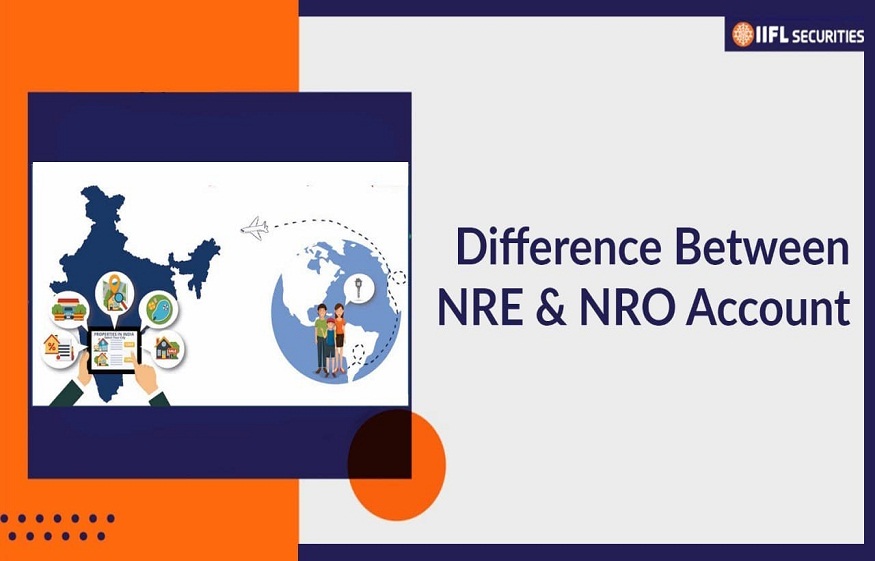A fixed deposit account is one of India’s most popular investment options that allow people to park their surplus income and earn valuable returns from it. Read on to know more about the NRE and NRO fixed deposits for NRI account holders.
Many Indians who move to a foreign location searching for a new job or a better business opportunity often look to park their earnings in India. The Indian banking system allows the NRIs to open an NRI-specific bank account, like the NRE (Non-resident External) and NRO (Non-resident Ordinary) account. These accounts can be opened as a savings account, recurring deposit, or fixed deposit account.
Both these accounts have distinct features and serve different purposes. If you are not sure which account to open, then you must be aware of the key differences between the two accounts to make an informed choice.
What is an NRE fixed deposit account?
A Non-Resident External fixed deposit account is a term deposit that allows a person to make deposits from his/her current location and remit the same in an Indian account where the deposit is held in Indian Rupees. A fixed deposit NRE account works like the regular fixed deposit for Indian residents. The account holder can invest a lump sum amount for a fixed period and get returns at a predetermined interest rate.
What is an NRO Account?
An NRO account is a type of account that allows you to manage the income earned in India. The income earned can be from different sources, including house rent, dividends from investments, pension, etc. A significant feature of the NRO fixed deposit is that interest earned from it is taxable in India.
Difference between NRE and NRO Fixed Deposit Account
Now that you know what NRE fixed deposit account and NRO fixed deposit account is, it would help to know the difference. These accounts are distinct under different parameters, which are discussed below:
Joint Account
While both NRE and NRO accounts allow you to open a joint account, the difference lies in who can be the account’s joint owner.
If you wish to open an NRO account, then the joint account owner must be a resident Indian citizen.
For an NRE account, the joint account holder can either be an Indian resident or an NRI.
Interest Rate
The interest rate is an important factor to consider while making your choice of opening the right fixed deposit account as it directly affects the returns you earn. The interest rate offered on both these accounts varies from bank to bank. As such, you must find the bank that provides the highest returns. Typically, the banks provide NRE and NRO fixed deposits for 1-20 years, and you have the flexibility to choose the tenure based on your specific needs.
Withdrawal and Deposit Process
In a fixed deposit NRE account, you can remit foreign currency you earn (either through salary or business income) from abroad and deposit the same in INR in an Indian bank account.
You can open an NRO fixed deposit account only with funds that you earn in India, and consequently, the deposits are made in Indian currency only. You can also transfer funds from your NRE account to the NRO account for opening a fixed deposit.
The withdrawals from both these accounts can be made only in Indian Rupees.
Repatriation
One of the significant differences between NRE and NRO accounts lies in the funds’ transferability.
With an NRO account, you can only repatriate the interest earned from the deposit to a foreign account. With the NRE account, both the principal and the interest amount are fully repatriable to either an NRO account or a savings account in a foreign bank.
NRE Fixed Deposit or NRO Fixed Deposit – Which is better?
The choice between NRE and NRO fixed deposit mainly depends on your preference. It is better to open an NRE FD account if you want to invest your foreign earnings in India and want the money to be fully repatriable. On the other hand, the NRO account is an ideal choice if you wish to park your earnings in India in Indian currency.
